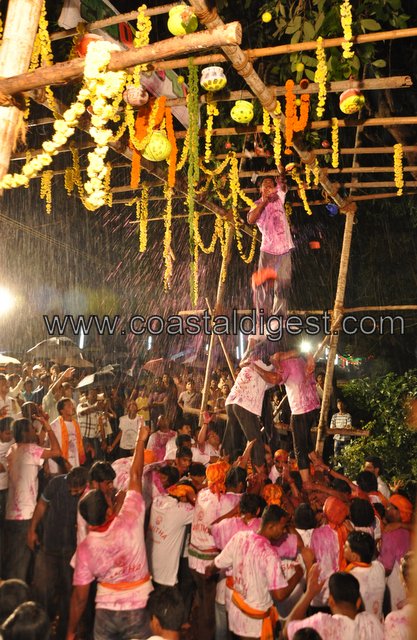 Mangalore, September 10: Pots and vegetables dangling way above the road seemed to be the cynosure of many people who congregated at different places in the city to celebrate “Mosaru Kudike” to mark Krishna Janmashthami.
Mangalore, September 10: Pots and vegetables dangling way above the road seemed to be the cynosure of many people who congregated at different places in the city to celebrate “Mosaru Kudike” to mark Krishna Janmashthami.
Traffic remained closed or slow-moving as Attavar, Shaktinagar, Urva Stores, Urva Market, Thokottu, Kadri, Kotttara bore witness to human pyramids, needing three tiers of people to reach and break the pots, disbursing colour, and cucumbers dangling above.
In Attawar, Shri Krishna Jayamtyotsava Samiti organised the event at Shri Arasu Mudatheya ground. This marked the 103th year since the tradition was started there.
Marouli Nagaraj, who was chosen to break the pots and bring down the dangling cucumbers and flowers, was cheered by hundreds as he went on performing his task diligently. A musical concert of devotional songs was organised in the sidelines there.
Mosaru Kudike started at 9 p.m. in Shri Manjunatha temple at Kadri where a massive crowd gathered to see the ritual. Similar scenes were witnessed in Shaktinagar.
Thousands gathered in Thokottu on the outskirts of the city to witness the procession organised by Shri Jaya Veera Maruti Vyayama School Trust. Ten tableaux, including that of an idol of Krishna, were part of the procession. In Kottara, Hulli vesha artistes danced with frenzy for the crowds. The festivities continued down the road at Urva Stores, where an association of auto drivers organised the Mosaru Kudike.
Despite the rain, the festivities continued with pomp and vigour. In fact, it seemed as if the rain added to the chaos of the celebrations there.
Hawkers of trinkets, those selling street food made brisk business, as crowds swelled at temples to offer their prayers and to witness the festivities, which continued on till late in the night.
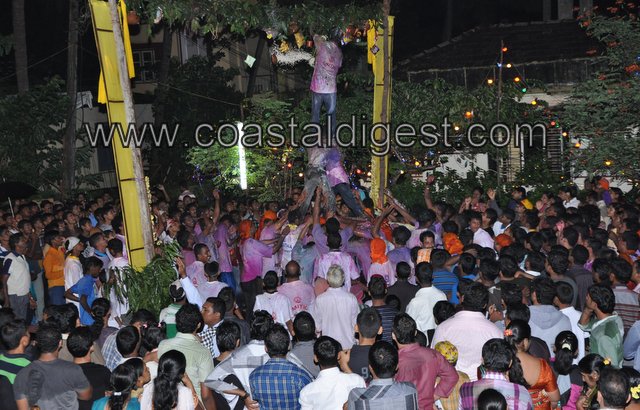
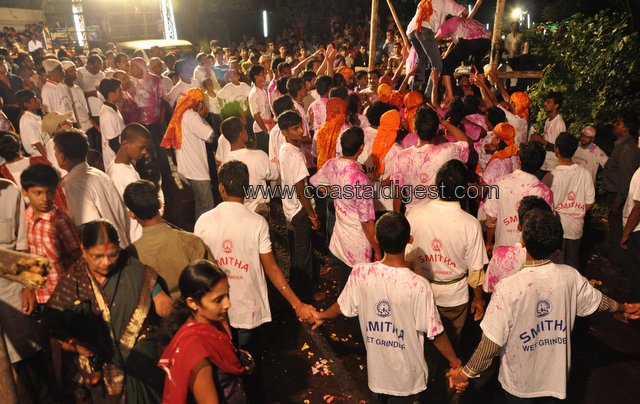
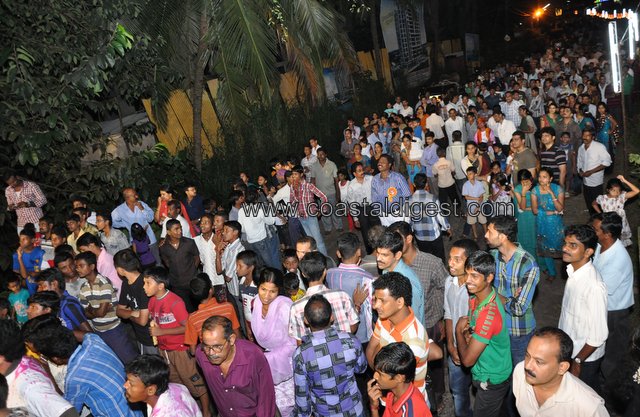
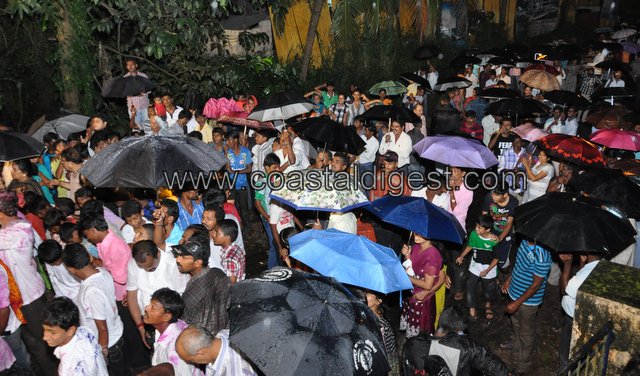
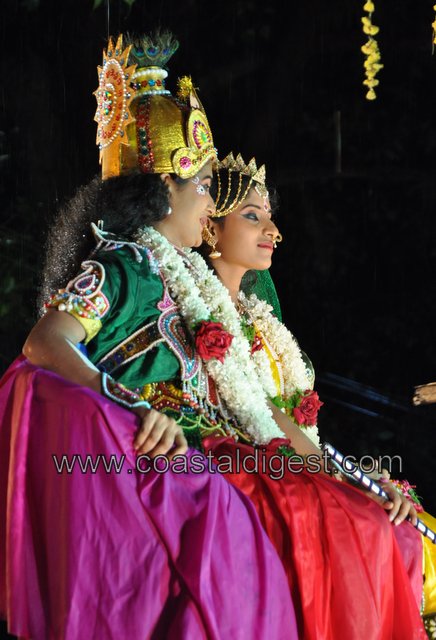
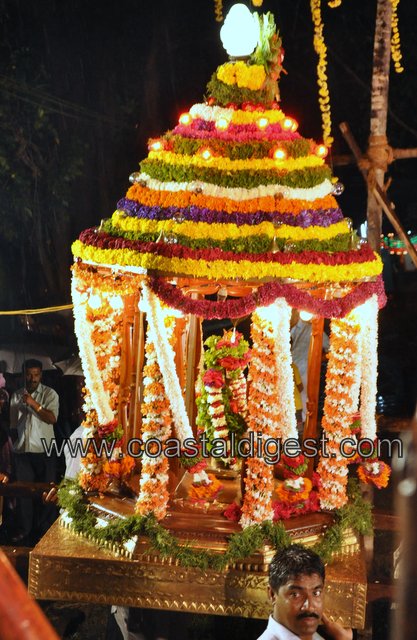
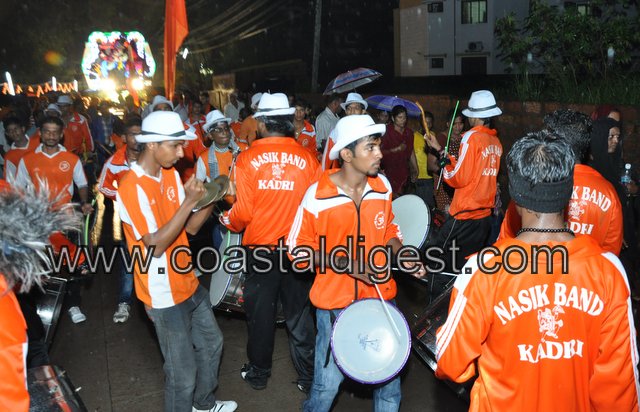
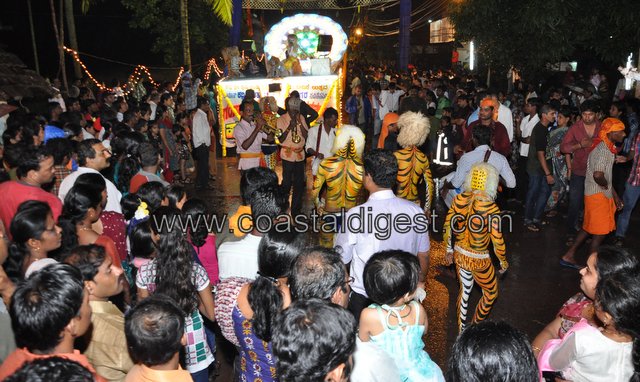
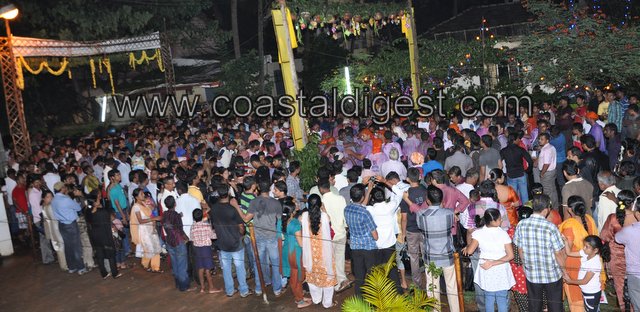
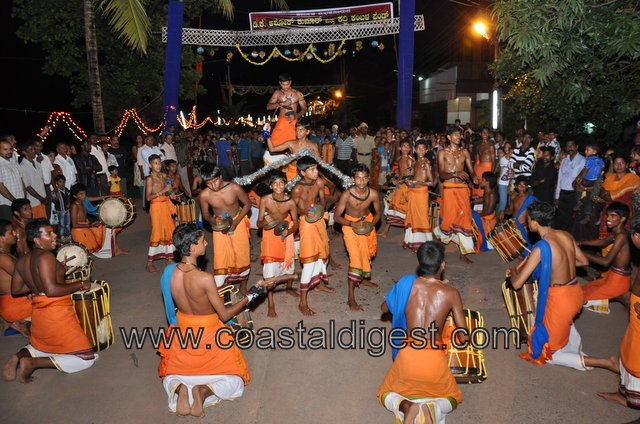
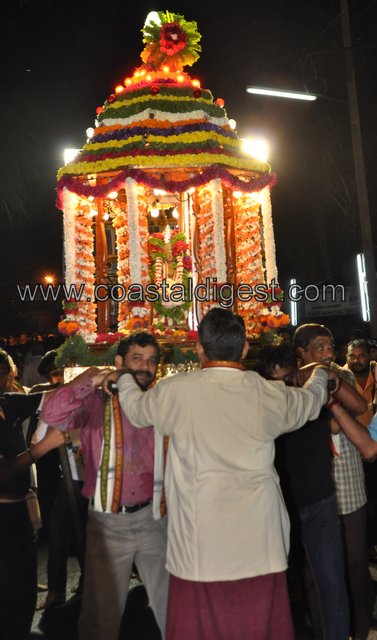
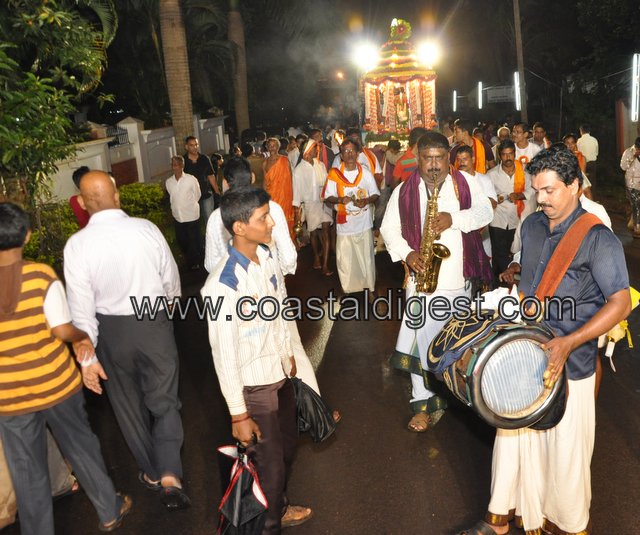
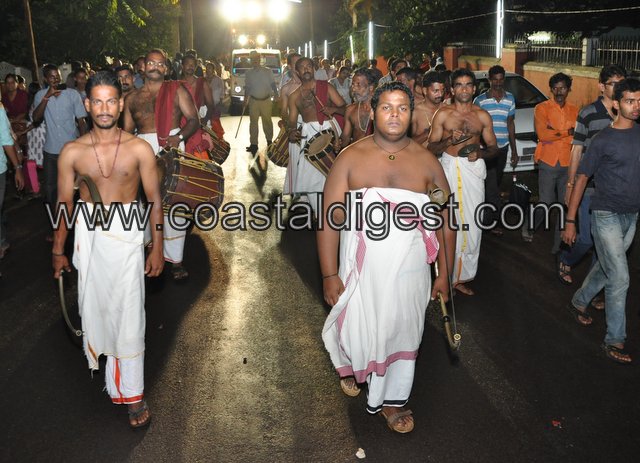
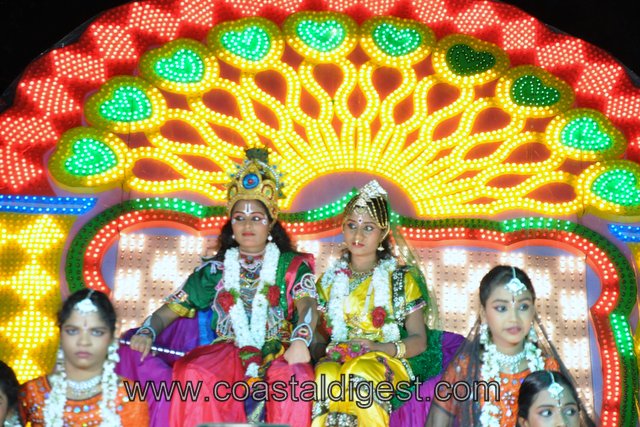
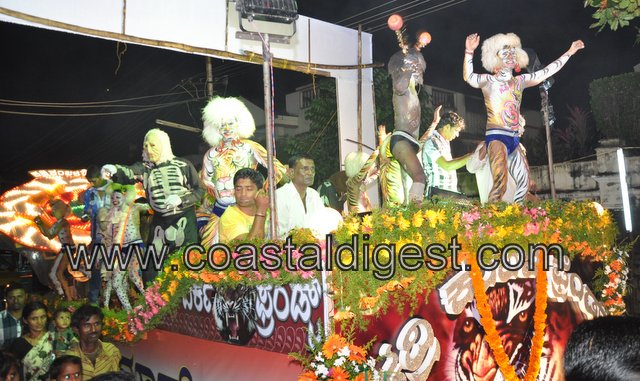
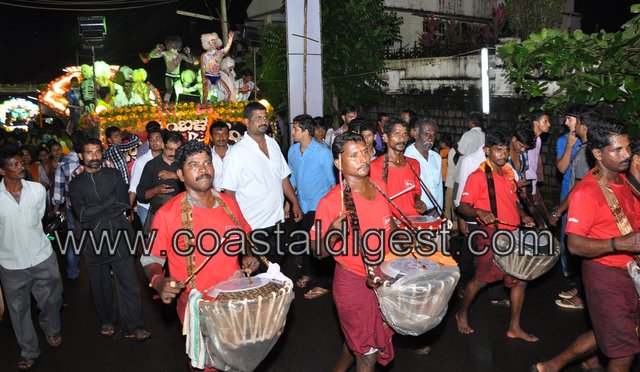
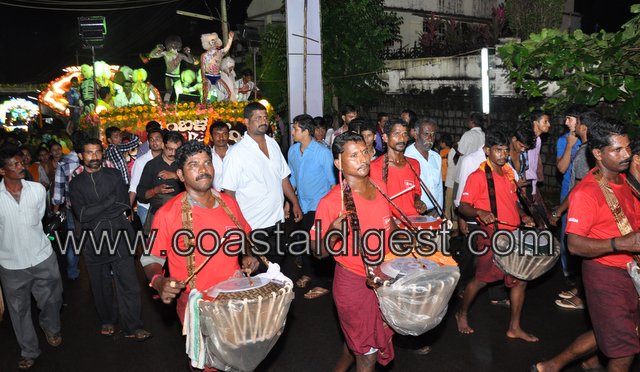
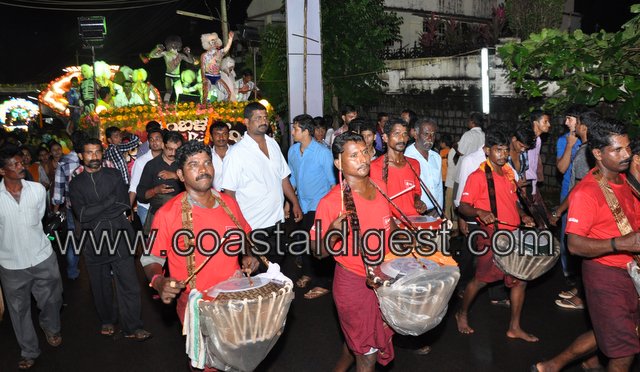





Comments
Add new comment